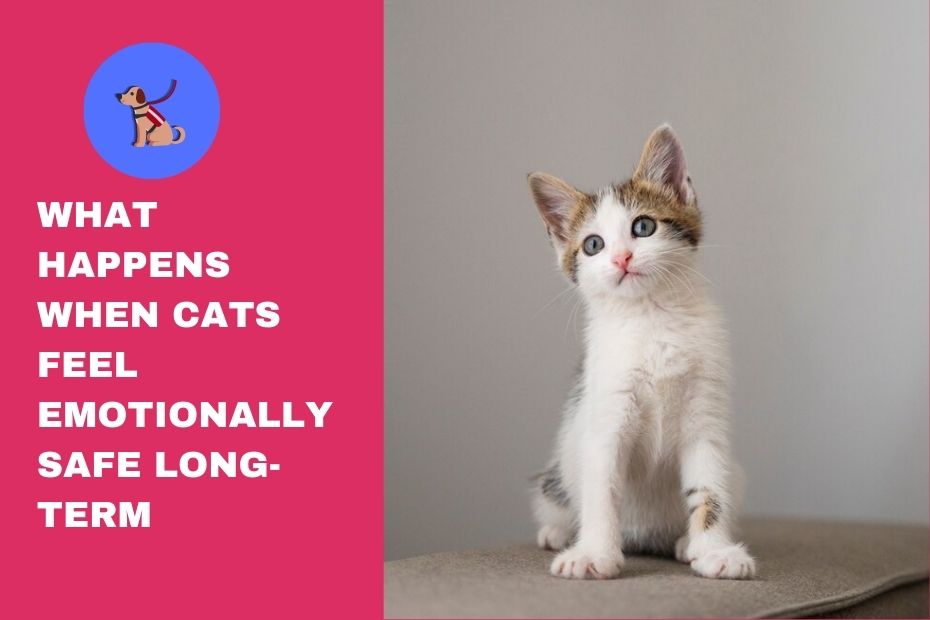Cats are often labeled as aloof or independent, but anyone who has truly bonded with a feline knows the depth of their emotional world. Just like humans, cats thrive in environments where they feel secure, loved, and understood. But what actually happens when a cat feels emotionally safe—not just temporarily, but over the long term? The transformation is remarkable.
1. Stronger Bonds With Humans
When a cat feels emotionally safe, they begin to form deep, trusting relationships with their human companions. Rather than hiding under furniture or keeping their distance, they seek out affection, follow their humans around the house, and may even sleep nearby or on their laps. These behaviors indicate that your cat sees you not as a threat, but as a source of comfort.
Over time, emotionally secure cats learn to interpret their human’s voice, body language, and routines. This understanding strengthens communication and leads to a deeper, more intuitive connection between cat and owner.
2. Playfulness and Curiosity Increase
Cats are naturally curious animals, but stress or fear can shut down their desire to explore. When a cat feels safe over a long period, their playful instincts shine through. They begin to investigate new toys, explore rooms they previously avoided, and engage in interactive play.
This increase in curiosity and play is more than entertainment—it’s a sign of a healthy, enriched mind. Emotionally secure cats often display kitten-like behavior well into their senior years simply because they feel confident and at ease.
3. Reduced Behavioral Issues
Many common feline behavior problems—scratching furniture, inappropriate urination, aggression—can stem from anxiety, fear, or insecurity. In a long-term emotionally safe environment, these issues often diminish or disappear entirely.
Secure cats don’t feel the need to mark territory obsessively or lash out defensively. They learn appropriate ways to express themselves, and their overall stress levels stay low. The result? A happier cat and a more harmonious household.
4. Better Physical Health
The mind and body are deeply connected—even for cats. Chronic stress in cats can lead to a range of health problems, from urinary tract issues to weakened immune systems and digestive disorders. When cats feel safe over time, their bodies relax, and their natural healing mechanisms work more efficiently.
Studies have shown that cats with stable, loving homes live longer, experience fewer illnesses, and recover faster when they do get sick. Emotional safety isn’t just a luxury—it’s essential for long-term health.
5. Affection Becomes More Freely Expressed
Many cat owners are surprised when their formerly shy or standoffish feline begins to show affection regularly—head butts, slow blinks, purring, and grooming their humans. These behaviors are not random; they are signs of deep emotional comfort and trust.
In emotionally safe environments, cats begin to initiate these interactions on their own, creating a richer, more rewarding bond between pet and owner.
6. Confidence and Independence Flourish
Ironically, the more emotionally safe a cat feels, the more independent and confident they become. Safe cats are not clingy; they are self-assured. They venture to new places in the home, engage with guests, and even tolerate changes in routine with more resilience.
Confidence in cats leads to balanced behavior. They are more adaptable, less fearful, and more cooperative when it comes to activities like grooming, vet visits, or introducing new pets.
Final Thoughts
Cats are complex creatures with emotional needs just as real as their physical ones. When they feel emotionally safe long-term, they don’t just survive—they thrive. From building strong bonds with humans to living healthier, more playful lives, emotionally secure cats reveal the best of what feline companionship has to offer.
Creating a safe emotional environment for your cat isn’t about expensive toys or treats. It’s about patience, consistency, respect, and love. And when a cat feels truly safe, the rewards are immeasurable—for both pet and person.
FAQ’s
How do I know if my cat feels emotionally safe?
If your cat displays behaviors like purring, seeking affection, playing, and being comfortable around you, these are signs that they feel emotionally secure. They may also follow you around or sit on your lap, demonstrating trust and comfort.
Can a cat’s emotional safety impact its health?
Yes, emotional safety plays a significant role in a cat’s physical health. Cats in secure, low-stress environments tend to experience fewer health issues, recover faster from illness, and live longer lives overall due to lower stress levels.
How can I create an emotionally safe environment for my cat?
Providing consistency in feeding, routine, and affection, along with a quiet, safe space for your cat to retreat when needed, helps foster emotional security. Positive reinforcement, like using treats and praise, also strengthens the bond between you and your cat.
